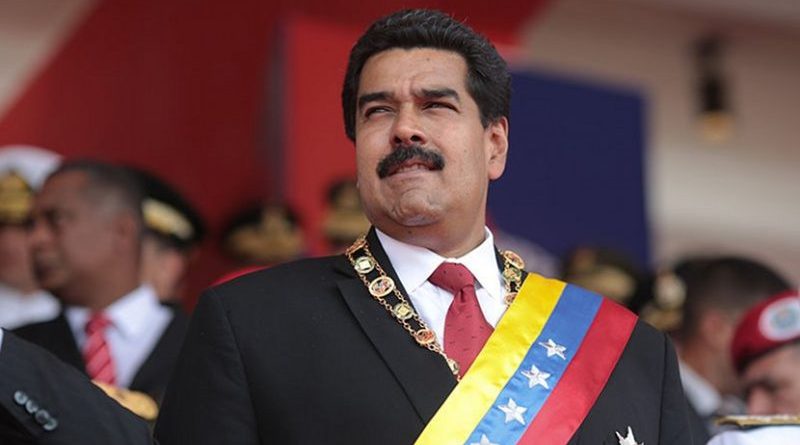A Missed Off-Ramp For US Venezuela Policy – OpEd
By Ivan Eland
Governments often act at cross-purposes with themselves—a delicate way of saying that governments often get in their own way. That is the case with the U.S. government’s reimposition of its economic sanctions on the Venezuelan oil industry.
In the wake of the Venezuelan President Nicolas Maduro’s agreement with his political opposition to work toward free and fair elections, the Biden administration committed to suspend the sanctions on oil—the country’s most important export, of which the United States had been the largest foreign customer.
Although the primary cause of the Venezuelan economy’s massive collapse has been its government’s horrendous socialist economic policies and political repression, the imposition of U.S. sanctions on the Venezuelan oil industryrestricted U.S. investment in that industry, removed a source of hard currency earnings from oil exports used to buy food and medicine overseas, and hampered the refinancing of Venezuelan debt. Although many Venezuelans are unhappy about their own government’s overly restrictive and failed economic and political policies, U.S. economic sanctions imposed to oppose those policies, and tightened during the Trump administration, hurt average Venezuelans and were also unpopular.
In many cases, external coercive economic pressure, like similar outside military pressure, can cause a political “rally-around-the flag” effect, thus benefiting even an unpopular regime, such as Maduro’s. Also, U.S. reimposed sanctions on oil exports will not entirely stop Venezuelan oil exports—they will just increase Venezuela’s export costs and reduce revenues.
Most important, the American oil sanctions, by further battering the Venezuelan economy, aggravated the huge outflow of Venezuelans to surrounding countries and to the U.S. brain drain has resulted from Venezuela losing as much as a quarter of its people, hundreds of thousands of whom are showing up at the southern American border, thus exacerbating the preexisting border crisis. In addition to employing usually ineffectual economic means to achieve the ambitious political goals of regime or system change—in this case, free and fair elections—in a distant foreign country, trying to squeeze further the already severely wounded Venezuelan economy has merely created more chaos at the U.S. border.
Instead of reimposing the oil embargo when Maduro predictably began to sabotage the agreement to move toward free and fair elections, the U.S. should have instead decided quietly to live with the Maduro government. If the U.S. had also done this with Fidel Castro’s socialist government in Cuba when it assumed power in 1959, it could have made that government bear popular criticism for its horrendous economic policies, instead of it being able to lay the blame on gringo imperialist economic, military, and paramilitary attempts to topple the regime. Such failed coercive policies led to the Bay of Pigs fiasco, the Cuban Missile Crisis, and the communist regime using the threat from the Colossus of the North to strengthen its hold on power for decades.
Yet learning nothing from the total failure of coercive policy toward Cuba, the United States has long attempted the same aggressive policies—economic sanctions and a coup attempt during the Trump administration—toward Venezuela while somehow expecting a better outcome. Now the Biden administration has refused to take an off-ramp from such disastrous policies. It could have done so by declining to reimpose oil sanctions—that is, allowing them to remain lapsed—which might help lower the price of gasoline for American consumers and ease the border chaos. Instead, the reimposition of U.S. sanctions, along with the abandonment of hope with Maduro’s likely re-election, could push more desperate Venezuelans to the border during an American election year.
This all has occurred in parallel with the complete failure of multiple rounds of American sanctions to effect meaningful change in Russia’s war in Ukraine. Sanctions have allowed policymakers to look tough, but they haven’t stopped Russian advances.
The U.S. government has still not learned a repeated lesson: attempts at economic strangulation do not normally result in the target nation making the usually significant desired political changes. The fact is that countries have a limited number of ways to show disapproval of countries’ actions, economic policies, or political systems. A diplomatic slap on the wrist might seem too weak; covert action or military operation may seem too drastic. Thus, the default “goldilocks” option seems to be to take the medium route of showing sacrifice of mutually beneficial economic relations to signal disapproval of target nation policy.
Like communist Cuba, socialist Venezuela is not much of a national security threat to the United States. The U.S. government needs to learn to live with foreign countries having governmental systems that are less than democratic or economically efficient. We would have fewer “boomerang” ill-effects from U.S. meddling in other countries’ internal affairs if we instead spent more time saving our own democracy at home.
- This article was also published in The American Conservative

